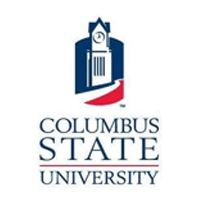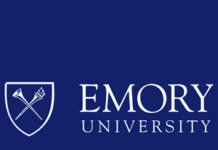![]() Here is this week’s news of grants or gifts to historically Black colleges and universities or for programs of particular interest to African Americans in higher education.
Here is this week’s news of grants or gifts to historically Black colleges and universities or for programs of particular interest to African Americans in higher education.
 Martha Escobar, an associate professor of psychology at Oakland University, has been awarded a $2.6 million grant by the National Science Foundation that will fund a research project focused on examining the factors that contribute to the success of underrepresented minority faculty (URM) in STEM departments at historically Black colleges and universities. One part of this project will select early-career URM faculty at Tuskegee University, Tennessee State University, and Jackson State University, and provide them support that will contribute to their career-advancement. Additionally, Dr. Escobar will conduct research on how URM faculty members perceive their universities and how that contributes to their success. According to her, even though the number of URM with Ph.Ds in STEM fields is growing, they only make up 8 percent of STEM faculty. She believes “that efforts should be made not only to recruit URM faculty, but also to retain URMs in academia, and provide an environment that helps them progress through the academic ranks to reach the status of full professor.” Dr. Escobar holds a bachelor’s degree in psychology from the University of Deusto in Spain, and a master’s degree and Ph.D. in cognitive and behavioral science from Binghamton University in New York.
Martha Escobar, an associate professor of psychology at Oakland University, has been awarded a $2.6 million grant by the National Science Foundation that will fund a research project focused on examining the factors that contribute to the success of underrepresented minority faculty (URM) in STEM departments at historically Black colleges and universities. One part of this project will select early-career URM faculty at Tuskegee University, Tennessee State University, and Jackson State University, and provide them support that will contribute to their career-advancement. Additionally, Dr. Escobar will conduct research on how URM faculty members perceive their universities and how that contributes to their success. According to her, even though the number of URM with Ph.Ds in STEM fields is growing, they only make up 8 percent of STEM faculty. She believes “that efforts should be made not only to recruit URM faculty, but also to retain URMs in academia, and provide an environment that helps them progress through the academic ranks to reach the status of full professor.” Dr. Escobar holds a bachelor’s degree in psychology from the University of Deusto in Spain, and a master’s degree and Ph.D. in cognitive and behavioral science from Binghamton University in New York.
 Bowie State University, a historically Black educational institution in Maryland, has received a $399,843 grant from the National Science Foundation to integrate data analytics into its curriculum and research. Dr. LaTanya Brown-Robertson, an economics professor at Bowie State University, is a member of the grant project team. She believes that “when policymakers are deciding about the distribution of public resources and other measures that affect communities and individuals, it is important that the people analyzing the data are diverse and have a deep understanding of issues impacting minority communities.” Over the next three years, the university plans to roll out five new courses that will establish an upper-level graduate certificate program in data analysis. Dr. Brown-Robertson holds a bachelor’s degree, a master’s degree, and Ph.D. all in economics from Howard University in Washington, D.C.
Bowie State University, a historically Black educational institution in Maryland, has received a $399,843 grant from the National Science Foundation to integrate data analytics into its curriculum and research. Dr. LaTanya Brown-Robertson, an economics professor at Bowie State University, is a member of the grant project team. She believes that “when policymakers are deciding about the distribution of public resources and other measures that affect communities and individuals, it is important that the people analyzing the data are diverse and have a deep understanding of issues impacting minority communities.” Over the next three years, the university plans to roll out five new courses that will establish an upper-level graduate certificate program in data analysis. Dr. Brown-Robertson holds a bachelor’s degree, a master’s degree, and Ph.D. all in economics from Howard University in Washington, D.C.
 Columbus State University has been awarded a $3 million grant by the National Science Foundation to lead a scholar program for 140 STEM students at six institutions across southwestern Georgia. Along with Columbus State, the other five schools are Columbus Technical College, Abraham Baldwin Agricultural College, Georgia Southwestern State University, South Georgia Technical College, and Valdosta State University. This initiative will prepare more students from underrepresented groups for careers in STEM fields. Participating students will receive a stipend, mentoring, research opportunities, and assistance with internships and networking. They will meet monthly with scholars at their own institution, and annually with the entire program. Additionally, they will be encouraged to attend national conferences in the STEM field.
Columbus State University has been awarded a $3 million grant by the National Science Foundation to lead a scholar program for 140 STEM students at six institutions across southwestern Georgia. Along with Columbus State, the other five schools are Columbus Technical College, Abraham Baldwin Agricultural College, Georgia Southwestern State University, South Georgia Technical College, and Valdosta State University. This initiative will prepare more students from underrepresented groups for careers in STEM fields. Participating students will receive a stipend, mentoring, research opportunities, and assistance with internships and networking. They will meet monthly with scholars at their own institution, and annually with the entire program. Additionally, they will be encouraged to attend national conferences in the STEM field.
 The National Science Foundation has renewed a $4.5 million grant at Ohio State University and nine other institutions across Ohio that supports the Ohio Louis Stokes Alliances for Minority Participation (LSAMP) program. The program aims to get more minority students interested in STEM fields and has seen considerable success over the last five years. The grant will be led by Ohio State’s Office for Diversity and Inclusion and is the largest grant the office has ever received. The other institutions involved are Central State University, University of Cincinnati, Cleveland State University, Miami University, Wright State University, Cincinnati State Technical and Community College, Columbus State Community College, Cuyahoga Community College and Sinclair Community College.
The National Science Foundation has renewed a $4.5 million grant at Ohio State University and nine other institutions across Ohio that supports the Ohio Louis Stokes Alliances for Minority Participation (LSAMP) program. The program aims to get more minority students interested in STEM fields and has seen considerable success over the last five years. The grant will be led by Ohio State’s Office for Diversity and Inclusion and is the largest grant the office has ever received. The other institutions involved are Central State University, University of Cincinnati, Cleveland State University, Miami University, Wright State University, Cincinnati State Technical and Community College, Columbus State Community College, Cuyahoga Community College and Sinclair Community College.
 Historically Black Alabama A&M University has received a $376,520 grant from the National Aeronautics and Space Administration. The grant will develop a program to teach historically Black colleges and universities how to win federal contracts and get more involved in contract research and development. The money will be used by the Alabama A&M Rise Foundation to create workshops and materials to distribute to HBCUs across the country.
Historically Black Alabama A&M University has received a $376,520 grant from the National Aeronautics and Space Administration. The grant will develop a program to teach historically Black colleges and universities how to win federal contracts and get more involved in contract research and development. The money will be used by the Alabama A&M Rise Foundation to create workshops and materials to distribute to HBCUs across the country.
 The Thurgood Marshall College Fund (TMCF) has announced a $1.8 million grant that will support students’ transition from high school to college to the workforce. The new program, entitled TMCF Fleischer HBCU Scholars Program, will be launched at three historically black universities: Fayetteville State University, Texas Southern University, and Virginia State University. The initiative will aim to identify high achieving high school students and provide them with support in their college and professional careers through leadership and development activities and workshops. TMCF president and CEO, Dr. Harry L. Williams, stated that the “program will provide the pilot schools with tools and technology to bolster recruitment efforts” and help the students achieve success in school and their future careers.
The Thurgood Marshall College Fund (TMCF) has announced a $1.8 million grant that will support students’ transition from high school to college to the workforce. The new program, entitled TMCF Fleischer HBCU Scholars Program, will be launched at three historically black universities: Fayetteville State University, Texas Southern University, and Virginia State University. The initiative will aim to identify high achieving high school students and provide them with support in their college and professional careers through leadership and development activities and workshops. TMCF president and CEO, Dr. Harry L. Williams, stated that the “program will provide the pilot schools with tools and technology to bolster recruitment efforts” and help the students achieve success in school and their future careers.











